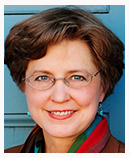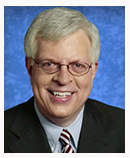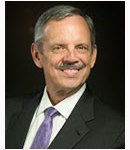We talk more about Christian worldview today with our guest, Nancy Pearcey. Nancy tells us more about her book, Finding Truth: 5 Principles for Unmasking Atheism, Secularism, and Other God Substitutes in which she explains five powerful principles that penetrate to the core of any worldview—secular or religious—to uncover its deepest motivations and weigh its claims. Later in the show, nationally syndicated radio talk show host, columnist, author, and public speaker, Dennis Prager joins us by phone to chat about his new book, The Ten Commandments: Still the Best Moral Code.

That's the mantra in many circles today--whether the church, the classroom, the campus, or the voting booth.
Time for a Reality Check
Nancy Pearcey, bestselling and critically acclaimed author, offers fresh tools to break free from presumed certainties and test them against reality. In Finding Truth, she explains five powerful principles that penetrate to the core of any worldview--secular or religious--to uncover its deepest motivations and weigh its claims.
A former agnostic, Pearcey demonstrates that a robust Christian worldview matches reality--that it is not only true but attractive, granting higher dignity to the human person than any alternative.
Finding Truth displays Pearcey's well-earned reputation for clear and cogent writing. She brings themes to life with personal stories and real-world examples. The book includes a study guide shaped by questions from readers, from teens to college professors. It is ideal for individual or group study.

Dennis has engaged in interfaith dialogue with Catholics at the Vatican, Muslims in the Persian Gulf, Hindus in India, and Protestants at Christian seminaries throughout America. For ten years, he conducted a weekly interfaith dialogue on radio with representatives of virtually every religion in the world. New York’s Jewish Week described Dennis Prager as “one of the three most interesting minds in American Jewish Life.”
Since 1992 to 2006 he taught the Hebrew Bible verse-by- verse at American Jewish University.
In 2011, Dennis co-founded with Allen Estrin, Prager University, an institution of higher learning on the Internet with a unique difference – all the courses are five minutes long. The courses distill the best ideas of the best minds in the world and cover the disciplines of Political Science, History, Philosophy/Religion, Economics and Psychology. The faculty includes Paul Johnson, George Gilder, Arthur Brooks, Peter Kreeft and many others.
Given their staggering importance, you would think that all societies, and certainly our educational and religious institutions, would be intent on studying them closely. Sadly, this is not the case. Our schools ignore them and our churches and synagogues take them for granted. But here's a simple test: Who among us can even name all of the Ten Commandments? And even among those who can name them, how many can explain them in a way that makes sense to the modern eye and ear?
If you are a person of faith, this book will strengthen it; if you are agnostic it will force you to rethink your doubts; if you're atheist, it will test your convictions. For people who have thought little about the Ten Commandments, as well as for those who have a sophisticated understanding of them, it will be a revelation.
That's a lot to ask of a little book, but the only thing that's little here is the length. The ideas are very big.
 Listen Online
Listen Online Watch Online
Watch Online Find a Station in Your Area
Find a Station in Your Area


 Watch Now
Watch Now Listen Now
Listen Now 









 Listen Now
Listen Now Watch Online
Watch Online
